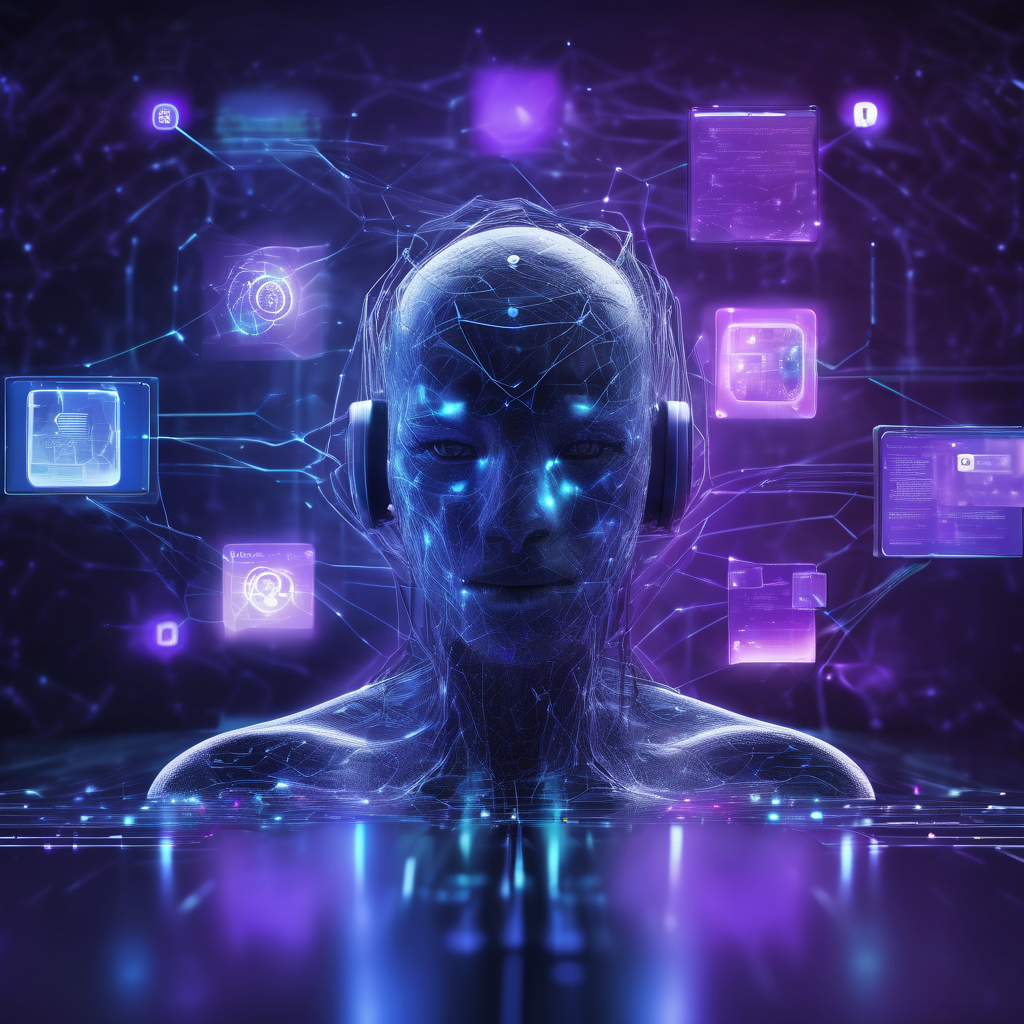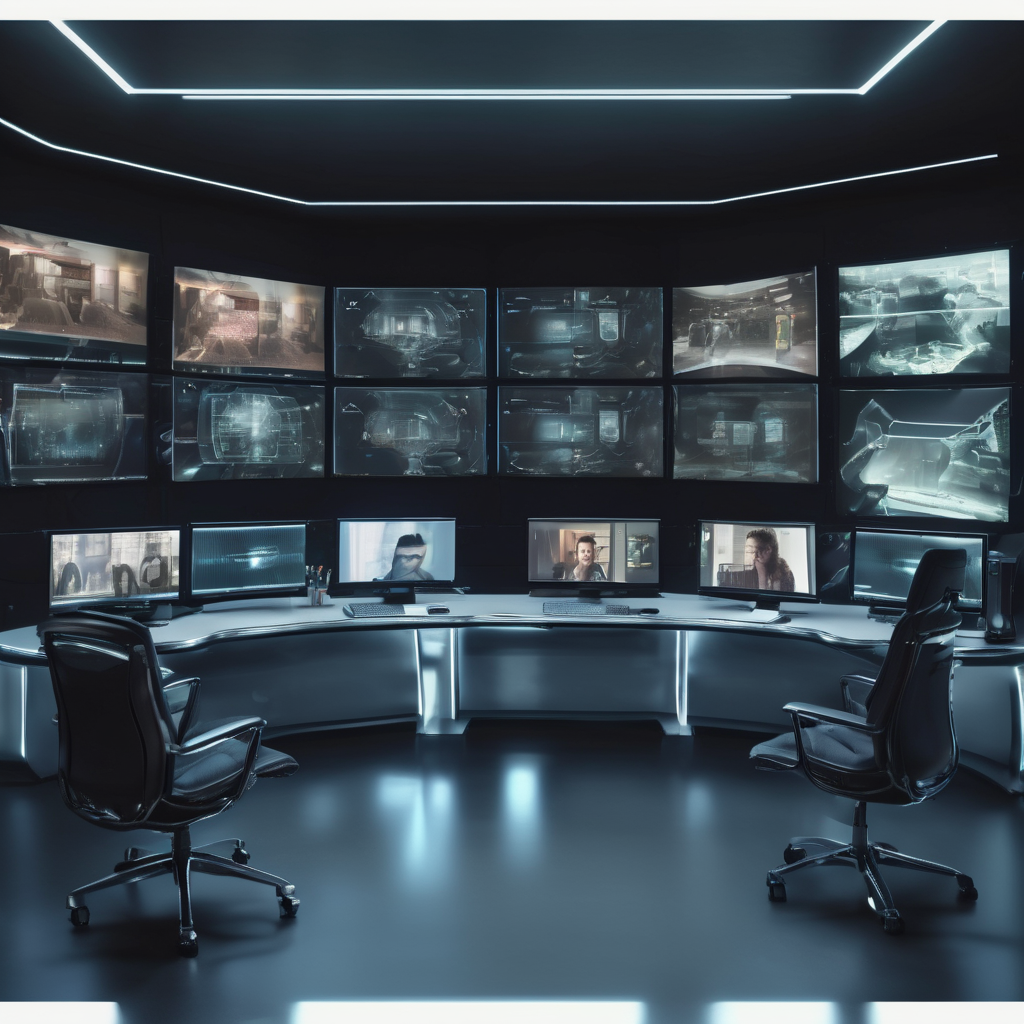
TV and movies serve as a welcomed distraction from our daily lives. However, entrusting AI with creative control is a grave error on multiple levels. Filmmaker and comic Patrick Karpiczenko took to Twitter on July 10th to express his dismay after asking an AI to generate a trailer for a HEIDI movie. The trailer initially appears innocent, featuring a young girl dancing in the Swiss mountains, reminiscent of the beloved children's stories. Nevertheless, the girl's melting face gives an unsettling twist to the scene. As the trailer progresses, townspeople transform into a mob, brandishing torches and shouting in the dark, turning the once idyllic setting into a disturbing Nazi rally, complete with Tiki torches. The trailer transitions to dogs and goats watching the unsettling scene in a modern movie theater, followed by the perplexing title, THE THE Eu UED. Although this video didn't personally disturb me, it definitely doesn't compare to the light-hearted entertainment of The Real Housewives of Orange County. When we come home from work, our intention isn't typically to submerge ourselves in the collective unconsciousness as a means of relaxation. The utilization of machines to generate lowbrow culture is causing an eerie sensation. Unfortunately, this is the future that many fear as AI continues to rise. In recent months, over 160, 000 actors joined more than 11, 000 writers in picketing Hollywood Studios to protest their concerns about AI posing a threat to cultural workers. This anxiety is well-founded. ChatGPT, a versatile AI language model, is capable of imitating any genre, and tools like Gen-2 are readily available for generating storyboards. Despite this, the current state of AI-generated culture hasn't reached the point of fully automating the entire film production process. So-called "generative AI" relies on statistical prediction models to remix and produce content based on our prompts. OpenAI's ChatGPT, for example, can generate images as requested, such as designing a poster for the latest Spiderman movie. While these algorithms excel at creating utterly bizarre and unusual lowbrow culture, they still lack the finesse required for true automation. These AI systems produce outputs that statistically resemble our input, which means they can also reproduce and combine our biases, leading to racist outcomes. Computational linguist Emily Bender and AI engineer Timnit Gebru have aptly referred to these as "stochastic parrots. " Nonetheless, generative AI can also be used creatively. By leveraging statistics and text prompts, it can simulate a concept like "Spiderman" or "Heidi" and generate corresponding visuals and text. However, the result often feels detached and alienating. Artist and critic Hito Steyerl coined the term "mean images" to describe these peculiar creations, highlighting their average yet cruel nature.
This strange genre extends beyond still images and also impacts videos. We are entering a world where statistical methods play a significant role in shaping culture. Generative AI has already given us glimpses of a partially automated entertainment industry, and it's undeniably bizarre. Video "art" pieces like the infamous "pizza commercial, " a beer commercial featuring explosive scenes, or the bewildering "Will Smith eating spaghetti" have a satirical essence, parodying familiar genres. However, trailers should ignite our desire to watch movies, and advertisements should allure us to products. AI-generated culture, on the other hand, differs entirely from this realm. Rather than providing a comforting, lowbrow experience that reconnects us to a "normal" reality, AI culture taps into the deepest, most violent, and perverse aspects of our collective unconsciousness. It exposes our repressed fears and desires, often in a manner that leaves us with an uncomfortable feeling. This unsettling sentiment can be described as "uncanny, " a term coined by psychoanalyst Sigmund Freud to capture the eerie familiarity of something that is simultaneously strange. In this case, generative AI's uncanniness emerges from our collective statistical patterns, offering a glimpse into aspects of society that should give us pause and concern. Media scholar Roland Meyer argues that AI systems have the ability to turn clichés into nightmares, diffusing the uncanny onto us and highlighting real social patterns that can evoke distress. Philosopher Slavoj Zizek once controversially claimed that The Sound of Music, despite its explicitly anti-fascist narrative, possesses subtle elements that resonate with a desire for fascism. Zizek suggests that the film's depiction of elegant and cosmopolitan Nazis aligns with common stereotypes associated with Jewish people, subtly implying that the virtuous Von Trapp family embodies the values of National Socialism. This paradox might explain the movie's continued popularity, resonating with our conscious democratic values while secretly appealing to our repressed fascist tendencies. Although most AI-generated art is not fully automated and won't be for the foreseeable future, it doesn't undermine the concerns of striking cultural workers who face significant job losses and wage reductions. When Karpiczenko was asked what he input into the algorithm to create the deranged Heidi trailer, his response in German, "our homeland + my youth = surreal fever-dream, " was both elusive and inconsequential. He and other contributors to this new genre amplify the peculiar statistical effect rather than being driven solely by prompts. As a result, the algorithm regurgitates fragments of our collective cultural knowledge, akin to a mashup with added noise, forming a statistical monstrosity. This new statistical uncanny extends beyond horror, although it is undoubtedly linked to the genre. The fascist turn the Heidi trailer takes represents not a hidden desire for violence but rather the blurring and dilution of elements we typically dismiss as "bad" - cruelty, crime, abuse of power, and fascism. The impact of this diffusion means that even these negative aspects lose their definition and become disorienting. While it may ultimately become a source of fascination or even a means of finding comfort or reality in the future, for now, these statistical unconscious discoveries will continue to keep us up at night.
None


The artificial intelligence (AI) market within the social media sector is experiencing remarkable growth, with forecasts predicting an increase from a market value of 1.68 billion US dollars in 2023 to an estimated 5.95 billion US dollars by 2028.

Epiminds, a marketing technology startup, is betting that AI can help marketers accomplish more.

It’s time to get ahead in AI + B2B—not next quarter or next year, but right now.

Machine learning (ML) algorithms are increasingly vital in Search Engine Optimization (SEO), transforming how businesses improve search rankings and content relevance.

xAI, an artificial intelligence company founded by Elon Musk, has quickly become a major player in the AI field since its creation.

Deepfake technology has seen significant advancements in recent years, enabling the creation of highly realistic manipulated videos that convincingly replicate real people and scenarios.

Elon Musk’s AI company, xAI, is making a significant foray into the video game industry by leveraging its advanced ‘world models’ AI systems, designed to comprehend and interact with virtual environments.
Automate Marketing, Sales, SMM & SEO

and get clients on autopilot — from social media and search engines. No ads needed
and get clients today